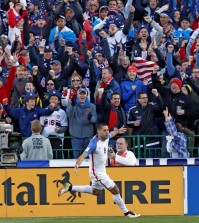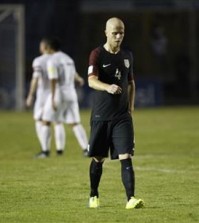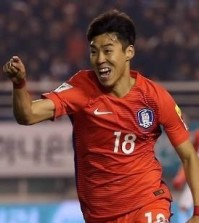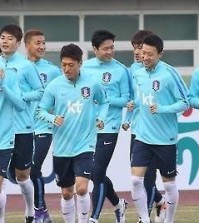- California Assembly OKs highest minimum wage in nation
- S. Korea unveils first graphic cigarette warnings
- US joins with South Korea, Japan in bid to deter North Korea
- LPGA golfer Chun In-gee finally back in action
- S. Korea won’t be top seed in final World Cup qualification round
- US men’s soccer misses 2nd straight Olympics
- US back on track in qualifying with 4-0 win over Guatemala
- High-intensity workout injuries spawn cottage industry
- CDC expands range of Zika mosquitoes into parts of Northeast
- Who knew? ‘The Walking Dead’ is helping families connect
Understanding Russian
South Korea focuses on their opening World Cup match
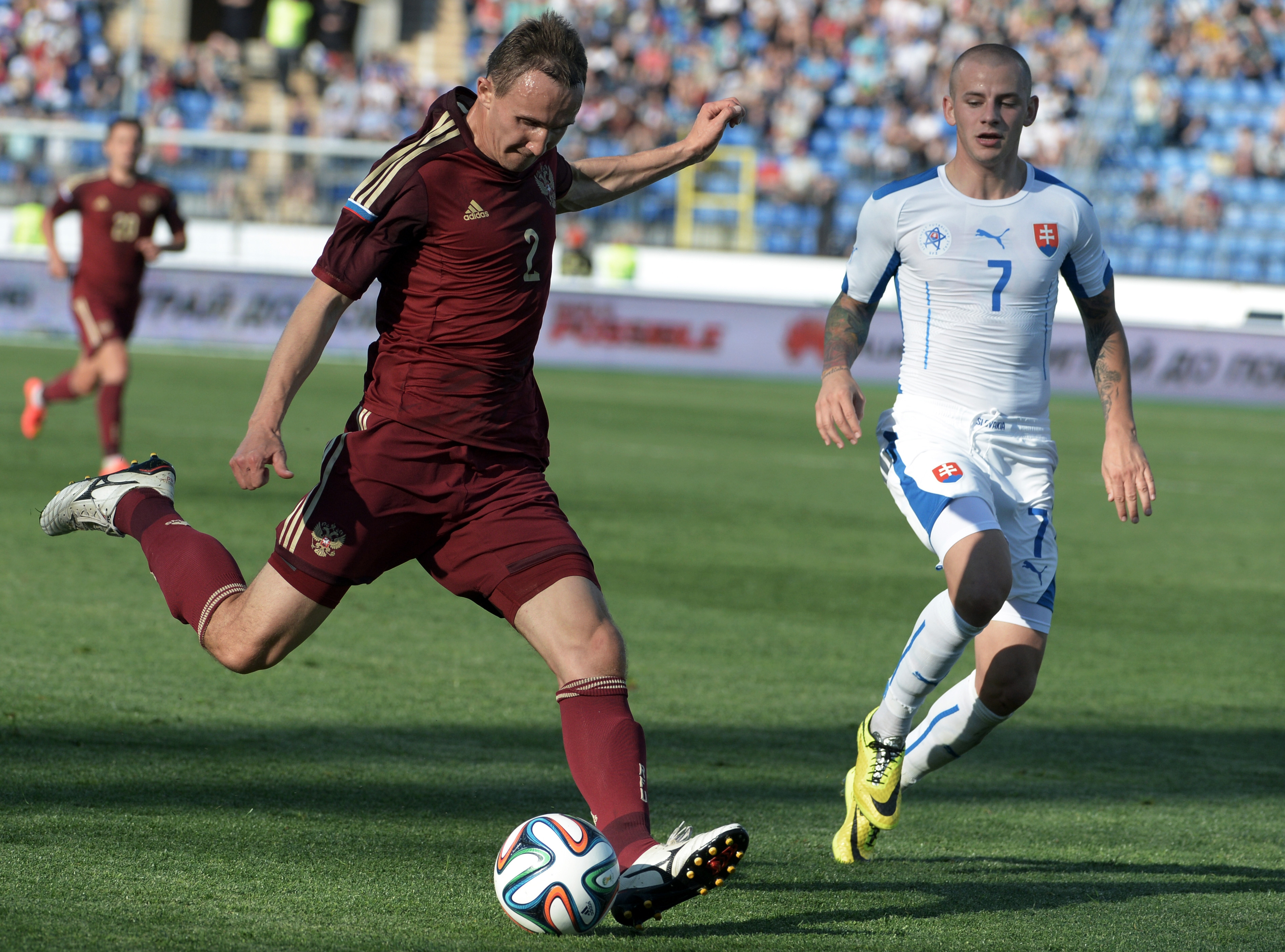
Russia’s Aleksei Kozlov, center, and Slovakia’s Vladimir Weiss, right, during a friendly soccer match between Russia and Slovakia in St. Petersburg, Russia, Monday, May 26, 2014. Russia won 1-0. (AP)
MIAMI (Yonhap) — Fully aware of the importance of the opening group match at the FIFA World Cup in Brazil, South Korea is closely studying Russia in the buildup to the big event, a midfielder on the team said Monday.
Ahead of the team practice at St. Thomas University in Miami, midfielder Park Jong-woo told reporters that the team watched video of Russia for the third time earlier in the day.
The South Koreans had studied the Russian team in two video sessions before arriving in the United States last weekend.
Russia played two friendlies over the past week, with a third coming up against Morocco on Friday. Russia beat Slovakia, 1-0, and drew Norway, 1-1.
Russia recently unveiled its 23-man squad, which is made up entirely of players from the domestic Russian Premier League.
Park said he came away impressed with Russia’s cohesiveness.
“Russia is strong at counterattacks, and it’s important for our defenders to establish good positioning,” the defensive midfielder said. “They’re a very organized squad, and it will be a difficult match for us.”
South Korean head coach Hong Myung-bo has often said his team is focusing solely on Russia in its preparation for the World Cup, where South Korea will also take on Algeria and Belgium in Group H.
South Korea has won its opening group matches in each of the past three World Cup finals, dating back to 2002. It defeated Poland, 2-0, at home in 2002, came from behind to defeat Togo, 2-1, in 2006 in Germany and then blanked Greece, 2-0, in 2010 in South Africa.
In 2002 and 2010, South Korea advanced to the knockout phase.
Ton du Chatinier, an assistant coach for Hong, is doubling as the team’s advance scout. He watched the Russia-Norway contest in Oslo and is scheduled to be in Moscow for the Russia-Morocco contest.
According to Park, coach Hong broke down Russian players in detail and told each South Korean player how they should handle their opponents. The South Koreans later had a separate discussion among themselves, Park added.
Asked about his role, Park said, “As the central midfielder, I should try to stop opponents’ counterattacks.” Park, who plays for Guangzhou R&F in China, was one of a dozen players on the current team who won the bronze medal at the 2012 London Olympics. Park said his mindset going into the World Cup is “similar” to the one he had in London, adding, “I am looking forward to (the World Cup), but I am also feeling a lot of pressure.” Park is far from guaranteed for minutes in Brazil. In London, he was the steady partner for Ki Sung-yueng in midfield, doing solid defensive work whenever Ki moved out in front to join the attack.
Recently, hard-working Han Kook-young of Kashiwa Reysol has emerged as a strong candidate for the job. He was arguably South Korea’s best player in the recent 1-0 loss to Tunisia in Seoul, when he cut off the visitors’ offensive flow with timely tackles and physical play.
Park said it’s difficult to talk about the internal competition and added, “As much as it’s a competition, it’s also important to make sacrifices for the good of the team.” Also on Monday, winger Son Heung-min spoke of Russia’s organization.
“We need a lot of movements on the offensive end,” the Bayer Leverkusen player said. “We absolutely have to avoid making risky passes because they’re good at counterattacks.” Son said he wants to play a key role in creating scoring chances from flanks, since it will be difficult to break down the Russian defense through the middle.







